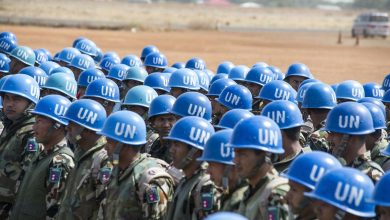United Nations Open-Ended Working Group on Ageing: Shaping Global Policies
The United Nations Open-Ended Working Group on Ageing focuses on protecting the rights of older persons. It addresses issues such as discrimination and neglect.
The United Nations Open-Ended Working Group on Ageing was established in 2010 by the UN General Assembly. Its primary goal is to strengthen the protection of human rights for older persons worldwide. This group brings together member states, civil society, and experts to discuss and propose solutions to the challenges faced by the elderly.
Key issues include age discrimination, elder abuse, and ensuring access to essential services. The Working Group also examines the need for a potential international legal instrument to safeguard the rights of older people. Through its efforts, it aims to create a more inclusive and supportive environment for aging populations globally.
Introduction To The Working Group
The United Nations formed the Open-Ended Working Group on Ageing. Its goal is to protect the rights of older people. This group helps create policies for the elderly. It makes sure their voices are heard.
Formation And Purpose
The group was established in 2010. It focuses on older adults’ human rights. The purpose is to address challenges faced by the elderly. They aim to ensure dignity and respect for older individuals.
Key Objectives
- Promote the rights of older people.
- Identify and address gaps in existing laws.
- Encourage global cooperation on ageing issues.
- Ensure older people’s participation in society.

Credit: social.un.org
Major Initiatives
The group works on creating policies for older people. These policies ensure dignity and respect. They aim to protect human rights. The group listens to elderly voices. They make sure laws are fair for everyone. Policy changes happen after careful study. The group checks global trends and best practices.
The group raises awareness about ageing issues. They work with governments to improve elderly care. Many campaigns highlight the needs of older adults. The group promotes positive images of ageing. They fight age discrimination everywhere. Workshops and seminars educate the public. The group also partners with local communities.
Global Collaboration
Member nations play a key role in the group. Each nation shares its best practices. They also discuss challenges faced by older people. These discussions help find common solutions. Nations work together to improve the lives of the elderly. They also create policies to protect older citizens. Sharing knowledge helps all members.
NGOs offer valuable support to the group. They provide on-ground insights. Their expertise helps shape better policies. NGOs also help in implementing these policies. Working with NGOs ensures that older people get the help they need. They bridge the gap between governments and the elderly. These partnerships make a big difference.
Challenges And Opportunities
Age discrimination is a big problem. Older people often face unfair treatment. They may be passed over for jobs. Some might not get proper healthcare. This is not fair. Laws can help protect them. Education can also make a difference. People need to understand that everyone deserves respect. Fighting age discrimination helps society. It makes the world better for everyone.
Active ageing means staying healthy and happy as you get older. Exercise is very important. It keeps the body strong. Social activities are also good. They help keep the mind sharp. Volunteering is another great option. Older people have much to offer. They have skills and knowledge to share. Promoting active ageing benefits communities. Everyone should support this goal.
Future Directions
The United Nations will focus on promoting the rights of older people. They aim to improve healthcare for the elderly. Social inclusion for older adults is a key priority. Economic security for aging populations will be discussed. Combating age discrimination is another important topic. The group plans to enhance legal frameworks for elder protection.
These agendas can improve the quality of life for older individuals. Better healthcare can help them live longer. Social inclusion can make them feel valued. Economic security can reduce their stress. Legal protection can keep them safe from abuse. Fighting discrimination can ensure they are treated fairly.

Credit: www.un.org

Credit: www.age-platform.eu
Frequently Asked Questions
What Is The Open Ended Group On Ageing?
The Open-ended Working Group on Ageing focuses on protecting and promoting the human rights of older persons. It addresses issues like elder abuse, discrimination, and social inclusion. This group aims to enhance global policies and practices for aging populations.
What Is The United Nations Program On Aging?
The United Nations program on aging addresses global aging issues. It promotes policies for the well-being and rights of older persons. The program encourages member states to implement age-inclusive strategies, focusing on health, social inclusion, and economic security for seniors.
It aims to create a society for all ages.
What Is A Un Open Ended Working Group?
A UN Open-Ended Working Group is a group with no fixed membership. It addresses specific global issues and allows all interested UN member states to participate.
What Are The Un Principles On Aging?
The UN principles on aging focus on independence, participation, care, self-fulfillment, and dignity. They aim to improve older adults’ quality of life.
Conclusion
The United Nations Open-Ended Working Group on Ageing plays a vital role. It addresses challenges faced by older adults. Support and awareness are essential for their rights. Advocacy and policy changes can enhance their lives. Join the movement to create a more inclusive society for all ages.




